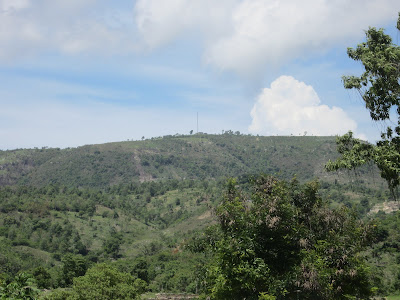I did not get too far in my medical school training before there developed within me a profound sense that something was up. The cadavers, the pathology slides, micro lab. What had they to say? Having come to faith as a boy, I was familiar with the passages in the Bible that spoke of the Church as Christ’s Body. Over the years, I had heard plenty of sermons and Sunday School lessons on the subject of spiritual gifts, taken from 1 Corinthians 12:
“Now the body is not made up of one part but of many. If the foot should say, “Because I am not a hand, I do not belong to the body,” it would not for that reason cease to be part of the body. And if the ear should say, “Because I am not an eye, I do not belong to the body,” it would not for that reason cease to be part of the body. If the whole body were an eye, where would the sense of hearing be? If the whole body were an ear, where would the sense of smell be? But in fact God has arranged the parts in the body, every one of them, just as he wanted them to be. If they were all one part, where would the body be? As it is, there are many parts, but one body. The eye cannot say to the hand, “I don’t need you!” And the head cannot say to the feet, “I don’t need you!” On the contrary, those parts of the body that seem to be weaker are indispensable, and the parts that we think are less honorable we treat with special honor. And the parts that are unpresentable are treated with special modesty, while our presentable parts need no special treatment. But God has combined the members of the body and has given greater honor to the parts that lacked it, so that there should be no division in the body, but that its parts should have equal concern for each other. If one part suffers, every part suffers with it; if one part is honored, every part rejoices with it. Now you are the body of Christ, and each one of you is a part of it.” 1 Corinthians 12:14-27
Overwhelmed and over my head in textbooks, class notes, pathology slides and cadavers, I could not stop thinking about the metaphor of the "body" of Christ when thinking of the Church and how I had never heard it taken beyond the simplicity of hands and feet, eyes and ears, presentable parts and unpresentable parts.
Now, I believe “body” is a perfect metaphor when describing the Church. I also believe, however, that God, in inspiring its use, knew (and knows) infinitely more about the human body than the first-century contemporaries of Paul. Paul knew nothing of serotonin. Nor could he have ever imagined the complexities of the respiratory control center of the medulla oblongata, or that ultraviolet rays from the sun caused malignant melanoma. Neither Paul nor his hearers could have conceived that leprosy might be caused by a thing called a microorganism, a billion of which could reside in a drop of water. Metaphoric language is useful only to the extent that those who hear it can identify with its terms. In likening the Church to the human body, then, Paul spoke of familiar things: hands and feet, eyes and ears.
Of course, Scripture is replete with anthropomorphic language that so effectively communicates truth in the familiar terms of the human experience. “Cleanse me with hyssop, and I will be clean,” David prayed. “wash me, and I will be whiter than snow” (Psalm 51:7), his request not for a physical scrub down, of course, but a spiritual one. “Blessed are those,” Jesus said, “who hunger and thirst for righteousness, for they will be filled.” People then, as today, so strongly identify with the physical experiences of hunger and thirst and being filled, that divine truth easily finds its mark in the minds of its hearers.
What of today? What does it mean today that the Church is the body of Christ? In considering timeless truths, can we, should we, need we, add new and fresh examples to the old ones? In a day when we have catalogued the entire human genome, do we risk straying in to heretical territory if we add to Paul’s examples of hands and feet things like DNA, thyroid glands and fetal development?
Keep in mind, everyone in Paul’s day had a pancreas. Fetuses went through the same phases of development for them as they do today. People had diabetes, lupus, high cholesterol, and warts. “Nothing in all creation is hidden from God’s sight,” the writer of Hebrews reminds us (4:13a). “Even the very hairs of your head are all numbered,” Jesus told his hearers (Matthew 10:30), not bothering to tell them that their white blood cells were probably also numbered. Wait... cell? What's a cell?
If you and I, as Christ's Church, are His "body," then might we stand something to learn about the nature and workings of His Body by examining the nature and workings of our own body? And if Paul had known of red blood cells and platelets and spleens, would he in describing the Church have drawn them in to the parallel? Perhaps. Knowing about such things, can we today?
“I knew something sacred was at stake.”
Ken Gire, The Reflective Life











